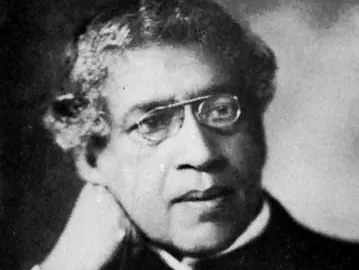Top 10 Indian Scientist

India has been home to many renowned scientists who have significantly contributed to scientific progress over the centuries. Here's a look at some of them.
Science impacts our daily lives in countless ways. From the smallest light bulb to massive machinery, everything around us is the result of scientific discoveries by brilliant minds.
India's history of technological advancement dates back to prehistoric times. Scientists like C. V. Raman and Radhakrishnan Venkatraman have made significant contributions in fields such as physics, medicine, mathematics, chemistry, and biology. Many Indian scientists have also been involved in research projects around the world.
This article celebrates the remarkable achievements of some of India's most famous scientists and innovators throughout history.
1. Dr. C.V. Raman
Dr. Chandrasekhara Venkata Raman was born on November 7, 1888, in Tiruchirapalli. In 1930, he won the Nobel Prize in Physics for his groundbreaking work on light scattering, known as the Raman effect. This discovery revealed that the wavelength of light changes when it passes through a transparent medium. He was also passionate about music and studied the acoustics of Indian musical instruments. Dr. Raman passed away on November 21, 1970.
2. Homi J. Bhabha
Born on October 30, 1909, in Bombay, Homi Jehangir Bhabha made notable contributions to quantum theory and cosmic radiation. As the first chairman of the Atomic Energy Commission, he played a key role in launching India's nuclear program. Bhabha preferred using nuclear technology for peaceful purposes and was against the development of atomic bombs. He died in a plane crash on January 24, 1966.
3. Visvesvaraya
Sir Mokshagundam Visvesvaraya was born on September 15, 1860. He served as the Diwan of Mysore from 1912 to 1918 and received the Bharat Ratna, India's highest civilian honor. An engineer, educator, and politician, he invented the automatic sluice gates and block irrigation system. India celebrates Engineer's Day on his birthday. He passed away on April 14, 1962.
4. Radhakrishnan Venkatraman
Born on May 18, 1929, Venkatraman Radhakrishnan was a distinguished radio astronomer who also designed ultralight sailboats and aircraft. His work included the creation of a 10.4-meter millimeter-wave radio antenna and various other astrophysical instruments. He passed away in Bangalore at the age of 81.
5. S. Chandrasekhar
Subrahmanyan Chandrasekhar was born on October 19, 1910, in Lahore, then part of British India. He won the 1983 Nobel Prize in Physics for his work on the mathematical theory of black holes. Known for the Chandrasekhar limit, his research spanned various areas of astrophysics. He became an American citizen in 1953 and passed away on August 21, 1995.
6. Satyendra Nath Bose
Born on January 1, 1894, in Calcutta, Satyendra Nath Bose was a mathematician and physicist specializing in quantum mechanics. His collaboration with Albert Einstein led to the development of Bose-Einstein statistics. The Indian government honored him with the Padma Vibhushan in 1954. He passed away on February 4, 1974.
7. Meghnad Saha
Meghnad Saha was born on October 6, 1893, in Dhaka, now in Bangladesh. His work on the thermal ionization of elements led to the formulation of the Saha equation, crucial for understanding star spectra. Saha was also elected to the Indian Parliament in 1951. He passed away on February 16, 1956.
8. Birbal Sahni
Born on November 14, 1891, in West Punjab, Birbal Sahni was a paleobotanist and geologist. He was the first Indian botanist to be elected a Fellow of the Royal Society of London. He founded the Institute of Palaeobotany in Lucknow. Sahni died on April 10, 1949.
9. Srinivasa Ramanujan
Srinivasa Ramanujan was born on December 22, 1887, in Tamil Nadu. A self-taught mathematician, he made substantial contributions to mathematical analysis, infinite series, and number theory. He collaborated with British mathematician G.H. Hardy. Ramanujan passed away on April 26, 1920, at the age of 32.
10. Jagdish Chandra Bose

J.C. Bose was born on November 30, 1858, in Bikrampur, West Bengal. He pioneered the study of radio and microwave optics and invented the crescograph to measure plant growth. Bose openly shared his research, earning him the title "Father of Open Technology." He passed away on November 23, 1937.



